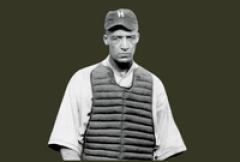1890 – Sam Rice is born in Morocco, Indiana. A quick outfielder with a great arm, Rice will lead the American League in hits twice, in stolen bases once, and collect at least 200 hits on six occasions, while finishing in the top ten in batting average eight times. Rice will gain election to the Hall of Fame in 1963.
1890 – Sam Rice is born in Morocco, Indiana. A quick outfielder with a great arm, Rice will lead the American League in hits twice, in stolen bases once, and collect at least 200 hits on six occasions, while finishing in the top ten in batting average eight times. Rice will gain election to the Hall of Fame in 1963.




